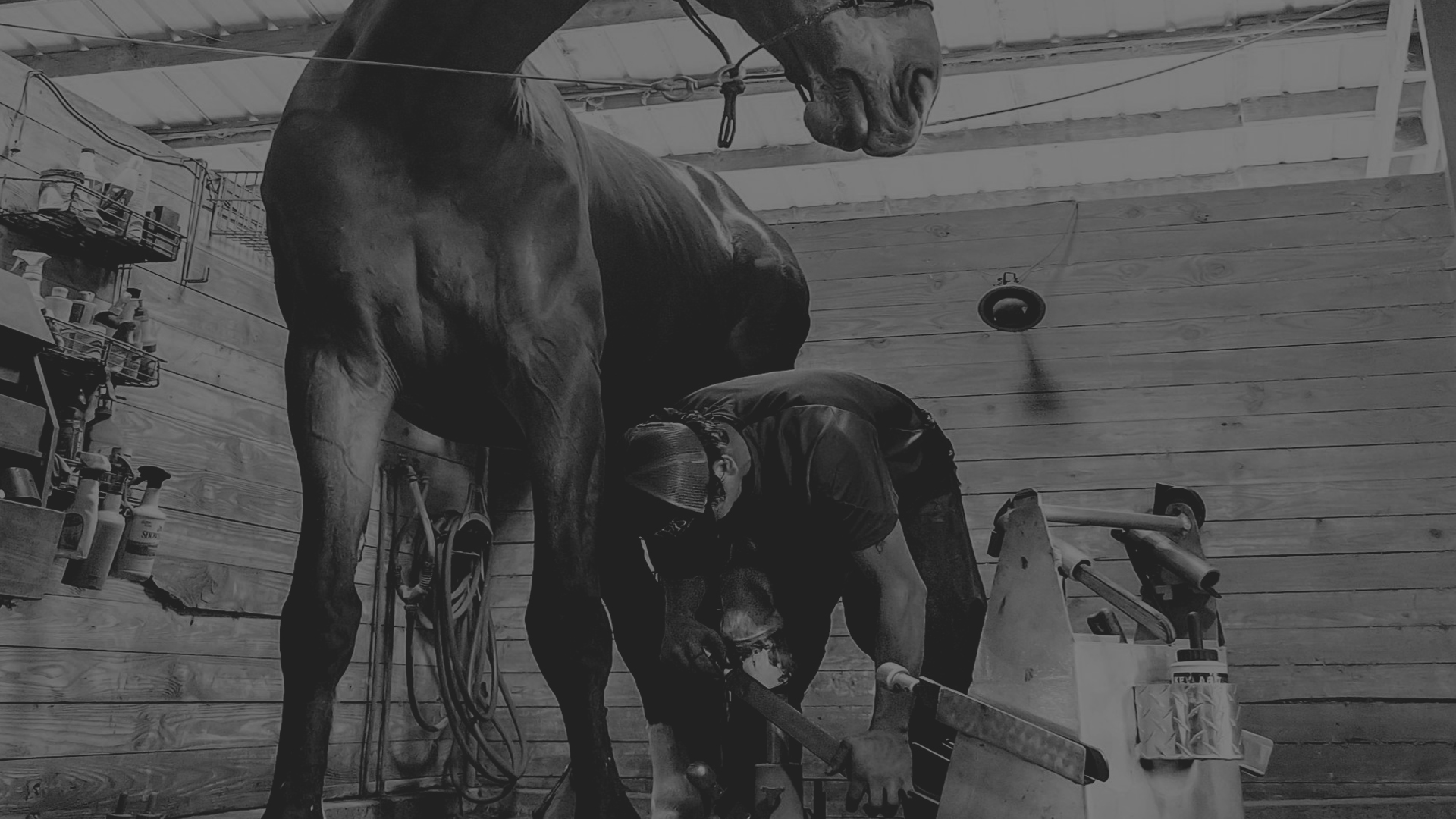FREQUENTLY
ASKED
QUESTIONS

1How often are you in my area?
Typically, we work on a rotating schedule of 4-5 weeks. We service an independent area each day of the week. However, we offer offer multiple haul-in days by appoint at our facility.
2Why is it important to stay on schedule?
It is important for your horse because we are constantly working to improve your athlete with every visit and we adjust our schedule to help us achieve the goals you have set. If the schedule is not followed it could hinder the amount of progress that we are making.
3Will I be charged for a cancellation?
Yes, due to our schedule being made several weeks in advance we cannot adjust our routes If an appointment is cancelled. If an appointment is cancelled without timely notification there will be an incurred cost.
4How do I treat an abscess?
First, immediately contact vet or farrier in case of underlying circumstances. Secondly, pack the hoof with Epsom Salt poultice or Magic Cushion Hoof Packing. Then wrap hoof in vet wrap be sure to keep wrap below the hairline as it could create other issues.
5What do I do when my horse loses a shoe?
Wrap the foot to prevent chipping and lameness or apply a hoof boot if available. Attempt to locate the shoe as this is a safety concern to your animal in the future. This also prevents the farrier from having to make a new shoe.
6Why is it important to keep my horses hooves dry?
The best way to answer this question is through Doctor Stephen O'Grady's explanation. "If you pour water over a board, the water will run off the board. But if you tie a rock to the board and submerge it in a water trough, the board will become saturated, become soft, and eventually fall apart."
7Do I get charged for a lost shoe?
Yes, there will be a $25 trip fee if you have the shoe and it can be reapplied. If you do not have the shoe there will be an additional $25 dollar charge to make and apply a new one.
8Should my horse be sore after an appointment?
This can be affected by a large amount of variables. However, typically for routine maintenance your horse should not be sore if kept in a clean and dry environment. Therapeutic cases will receive guidelines on follow-up care at the appointment.

